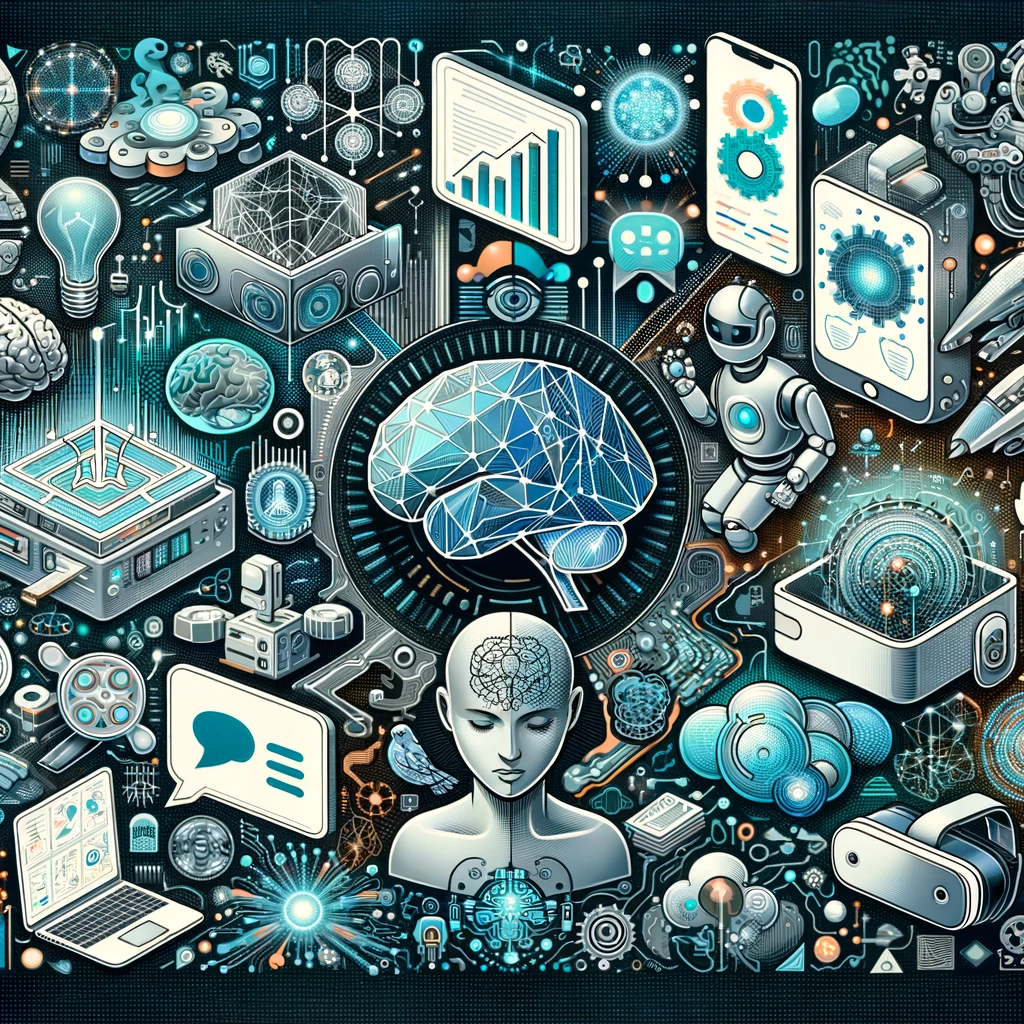Artificial Intelligence (AI) has been a buzzword in the tech industry for quite some time now. It has the potential to revolutionize a wide range of sectors, from healthcare to transportation. One area where AI has shown immense promise is in software development. AI-powered software is becoming increasingly prevalent, and it is expected to play a significant role in the future of technology. In this article, we will explore the growing demand for AI-powered software and how it could boost the total addressable market (TAM) for technology products, ultimately reaccelerating growth for tech companies.
The Growing Demand for AI-Powered Software:
AI-powered software refers to any software that incorporates AI technologies, such as machine learning, natural language processing, and computer vision. The demand for such software has been on the rise in recent years. Organizations across industries are realizing the potential benefits of AI and are keen to leverage it to enhance their operations.
One of the main reasons for the growing demand is the ability of AI-powered software to automate complex tasks, improve efficiency, and provide valuable insights. For example, AI-powered chatbots can handle customer inquiries and provide personalized recommendations, saving time and resources. AI algorithms can analyze large datasets and extract valuable insights, enabling businesses to make data-driven decisions. The applications of AI-powered software are vast, and it is expected to become an integral part of various business processes.
AI-Powered Software and the Total Addressable Market (TAM):
The total addressable market (TAM) refers to the maximum revenue opportunity available to a product or service. It is a crucial metric that helps businesses understand the potential size of their market and plan their strategies accordingly. With the increasing demand for AI-powered software, the TAM for technology products is expected to expand significantly.
AI-powered software has the potential to disrupt various sectors and create new market opportunities. For example, in the healthcare industry, AI-powered software can assist in diagnosis, drug discovery, and personalized medicine. In the financial sector, AI algorithms can analyze vast amounts of data to detect fraud and make more accurate predictions. These are just a few examples of how AI-powered software can transform industries and create new avenues for growth.
Boosting Growth for Tech Companies:
The expanding TAM for technology products due to the demand for AI-powered software presents an exciting opportunity for tech companies. By incorporating AI technologies into their software products, companies can tap into new markets and drive growth. Small tech startups can develop AI-powered solutions to address specific industry pain points, while large tech giants can enhance their existing products with AI capabilities.
Furthermore, AI-powered software can enable companies to offer value-added services to their customers. For example, an e-commerce platform can leverage AI algorithms to provide personalized recommendations, improving the customer experience and driving sales. Similarly, a software development company can develop AI-powered tools and frameworks that help other businesses build AI applications, opening up new revenue streams.
The Benefits of AI-Powered Software:
The benefits of AI-powered software are numerous, making it an attractive proposition for businesses. Some of the key advantages include:
1. Automation: AI-powered software can automate repetitive and time-consuming tasks, freeing up human resources to focus on higher-value activities.
2. Efficiency: By streamlining processes and making them more efficient, AI-powered software can reduce costs and improve productivity.
3. Insights: AI algorithms can analyze large datasets and extract valuable insights, enabling businesses to make data-driven decisions and gain a competitive edge.
4. Personalization: AI-powered software can provide personalized experiences to customers, leading to higher customer satisfaction and loyalty.
5. Scalability: AI-powered software can scale easily to handle large amounts of data and user interactions, ensuring smooth operations even as the business grows.
Challenges and Concerns:
While the potential benefits of AI-powered software are exciting, there are also challenges and concerns that need to be addressed. Some of the main challenges include:
1. Data Privacy: AI-powered software relies heavily on data, and there are concerns surrounding the privacy and security of personal information.
2. Ethical Considerations: AI algorithms can make autonomous decisions, raising ethical concerns related to bias, fairness, and accountability.
3. Skill Gap: Developing and deploying AI-powered software requires specialized skills and expertise, which may not be readily available in the market.
4. Adoption Barriers: Implementing AI-powered software may require significant changes to existing systems and processes, which can be a barrier to adoption for some organizations.
The Future of AI-Powered Software:
The future of AI-powered software looks promising. As technology continues to advance, AI algorithms will become more sophisticated, leading to even more powerful and efficient software solutions. Furthermore, the growing adoption of AI-powered software across industries will drive innovation and create new opportunities.
In the coming years, we can expect to see AI-powered software become a standard feature in many technology products. It will become increasingly integrated into various business processes and systems, enabling organizations to operate more efficiently and effectively.
Conclusion:
The demand for AI-powered software is on the rise, and it is expected to boost the total addressable market (TAM) for technology products. The ability of AI-powered software to automate tasks, improve efficiency, and provide valuable insights is driving its adoption across industries. This presents an exciting opportunity for tech companies to tap into new markets and reaccelerate growth.
However, challenges such as data privacy, ethical considerations, skill gaps, and adoption barriers need to be addressed for the widespread adoption of AI-powered software. Despite these challenges, the future of AI-powered software looks promising, and it is poised to become an integral part of technology products in the years to come.
AI-powered software is set to revolutionize the tech industry, expanding the total addressable market and driving growth for companies. While there are challenges to overcome, the benefits of AI-powered software are too significant to ignore. It is an exciting time for technology, as AI continues to reshape the way we work and live.








